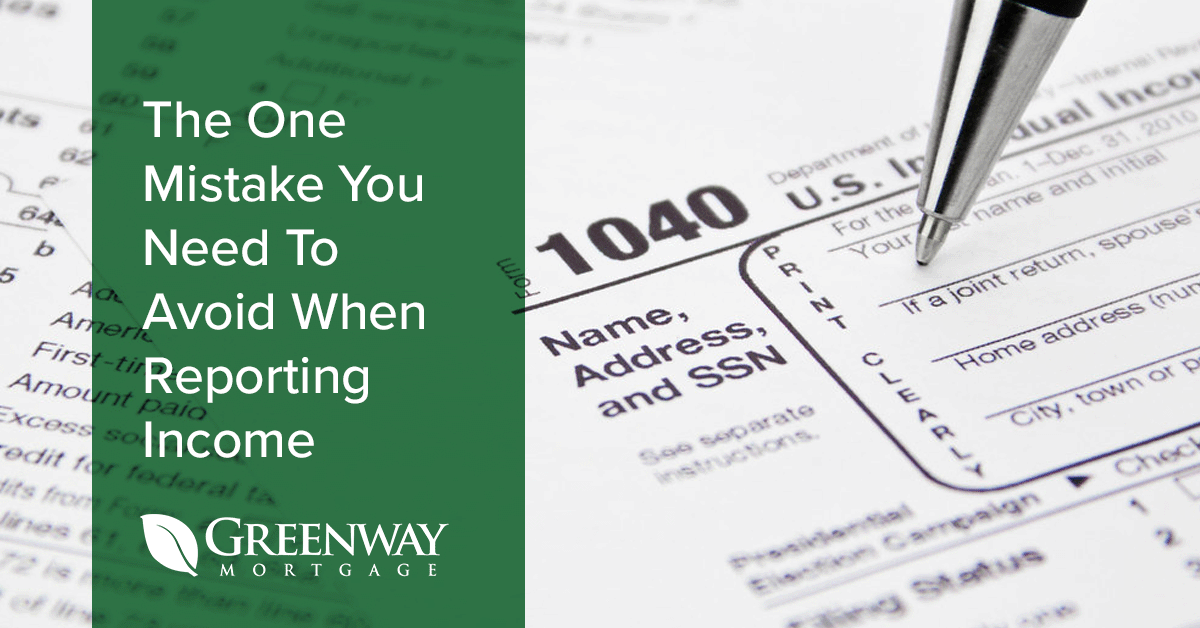
There’s an important rule of thumb about income when it comes to applying for a mortgage. The numbers you report to Uncle Sam are the numbers lenders will use when making a decision about mortgage qualification.
Many borrowers make the mistake of confusing actual income with reported income. Think of actual income as gross income from full-time, part-time or self-employment, or some combination of the three. This is the total number before you write off any expenses at tax time.
For example, suppose your full-time salary is $70,000 and you make another $20,000 from your side job. Your actual income is $90,000. But that’s not the number we use when evaluating your mortgage application.
Reported Income Is All That Matters
At tax time, your accountant will probably write off work expenses. If you claim $15,000 in unreimbursed expenses for your full-time, salaried position and $5,000 from your side job, the taxes you pay will be based on an income of $70,000. That’s your reported income, which is what lenders care about.
Suppose you use Schedule C (Form 1040) to report your income from the company you run as a sole proprietor. You make $100,000, which sounds great. But you have to invest $30,000 into marketing, equipment, phone and internet in order to make that $100,000. You write off these expenses on Schedule C.
Your actual income is $100,000, but your reported income on your tax return is $70,000. That’s the number Greenway Mortgage or any other lender will use in your mortgage application.
To be clear, we’re not saying you shouldn’t claim every legitimate deduction to reduce your tax burden. You just need to understand that deductions reduce your reported income, which could affect your ability to qualify for a mortgage and your overall buying power.
If you’re thinking about buying a home and your accountant tends to be very aggressive in looking for deductions, discuss this with your Greenway Mortgage loan officer and your accountant, and be careful about the expenses you claim.
Tax Return Numbers Must Match Mortgage Application Numbers
We’ve also had clients who said, for example, they made $70,000 last year. But when we looked at their tax return, we find out that they reported a loss from their business. You can’t then apply for a mortgage, which is likely to be government-sponsored by Fannie Mae or Freddie Mac, and claim that you made $70,000. The government already knows that you reported a loss.
In other words, you can’t say one thing on your tax return and say something else on your mortgage application.
Another common point of confusion is unreported income. Borrowers will come to us and say that they make a lot of cash off the books, whether it involves bartending, landscaping or any other type of work for which they’re paid in cash.
If you don’t report that income to the government, and you don’t pay taxes on it, you can’t use it when you apply for a mortgage. Period.
Mortgage Lenders Should Ask for Your Tax Returns
They should, but not all do. Instead, they ask for information from a W2 or a recent pay stub. But tax returns are the only documents that paint a full and accurate income picture that can be used when evaluating a mortgage application.
This is why a pre-approval carries so much more weight than a pre-qualification. Pre-qualification is based on a phone conversation and gives you a general idea of how much you would qualify to borrow. Pre-approval is based on a thorough review of documentation, including your tax returns, and shows exactly how much you would qualify to borrow.
If you have questions about actual income vs. reported income, or you’re thinking of buying a home, contact us to start the pre-qualification process. And please, have two years of tax returns handy.


.png)

